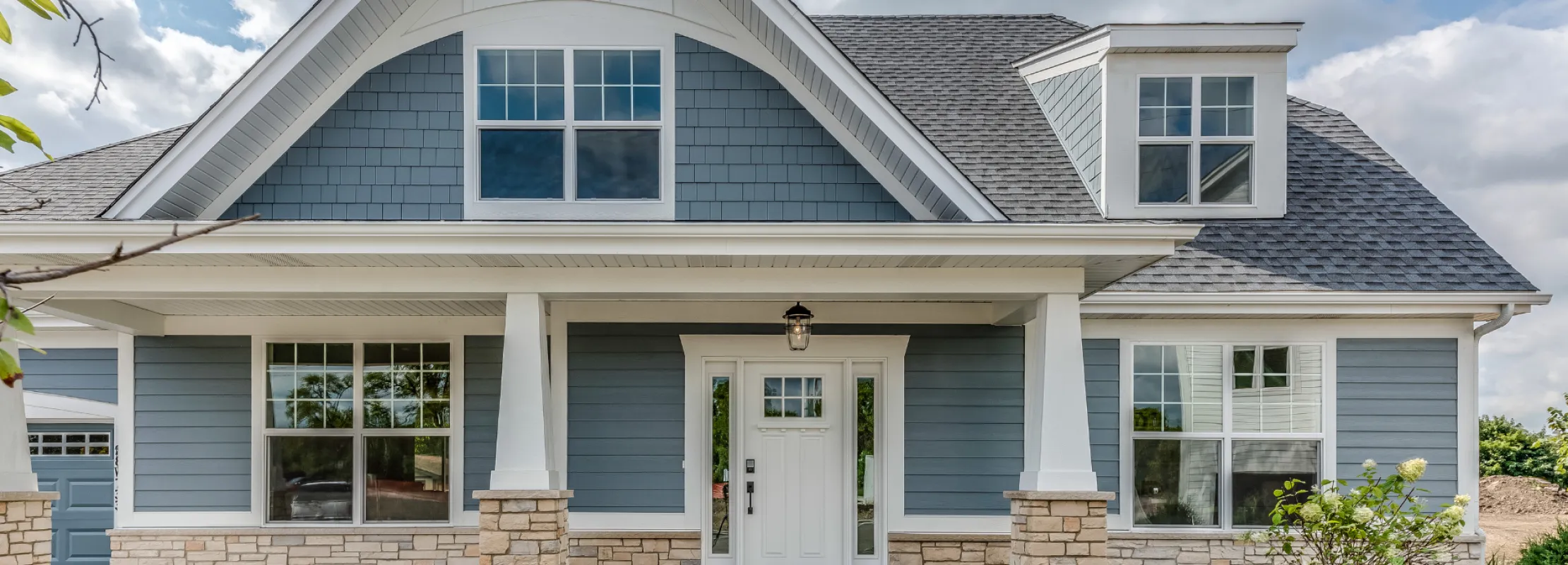
Conventional Mortgage Loans in Houston, TX
We Specialize In Finding The Best Solution For Your Situation

Houston Conventional Home Loans Overview
30, 20, 15 Year Fixed Mortgages
Conventional loans are a great option for borrowers with good or excellent credit, and the interest rates are based on your credit score. These types of loans are known as conforming loans, and they have specific criteria that differ from other types of loans like FHA, USDA, or VA loans. For 2023, the conforming loan limit for all Texas counties is $726,200. If you're considering buying a home in Houston using a conventional loan, Flagstone Mortgage can help.
So why choose a conventional loan? Conventional mortgages generally have fewer requirements and take less time to process than other types of loans like FHA, USDA, or VA loans. With a conventional mortgage, the loan is guaranteed by either Fannie Mae or Freddie Mac, while FHA loans are guaranteed by HUD and VA loans are guaranteed by the Veterans Administration.
At Flagstone Mortgage, we specialize in helping borrowers get the right loan for their needs. If you're looking to buy a home in Houston with a conventional loan, we can guide you through the process and help you find the best rates available.

What Is A Conventional Loan?
A conventional loan is a type of mortgage that is not insured or guaranteed by the federal government. Instead, conventional loans are backed by private lenders, such as banks, credit unions, and mortgage companies.
Because conventional loans are not backed by the government, they typically have stricter requirements for credit scores, income, and down payments. However, they often have lower interest rates than government-backed loans, and they do not require mortgage insurance once you have built up at least 20% equity in your home.
There are two types of conventional loans: conforming and non-conforming. Conforming loans are those that adhere to the guidelines set by Fannie Mae and Freddie Mac, which are two government-sponsored entities that purchase mortgages from lenders. Non-conforming loans, also known as jumbo loans, exceed the conforming loan limits and are typically used for high-end properties or borrowers with unique financial situations.
What Are the Requirements for a Conventional Home Loan in Houston?
The requirements for a conventional home loan can vary depending on the lender and the type of loan you are applying for. However, there are some general requirements that most lenders will consider when evaluating your application:
1.) Credit score: Conventional loans typically require a minimum credit score of 620, although some lenders may require a higher score.
2.) Debt-to-income ratio: Your debt-to-income ratio (DTI) is the percentage of your monthly income that goes towards paying your debts. Most lenders prefer a DTI of no more than 45%.
3.) Employment and income: Lenders will want to see that you have a stable employment history and a reliable source of income.
Conforming Home Mortgage
Our Conforming Home Mortgage option is designed to fit the needs of those looking for a mortgage that conforms to the guidelines set by Fannie Mae and Freddie Mac.
Jumbo Home Mortgage
A jumbo loan is a mortgage for high-value properties that exceed the conforming loan limits set by government-sponsored enterprises, with stricter qualification requirements and higher interest rates due to the larger loan amount.
4.) Down Payment: Conventional loans typically require a down payment of at least 3% to 5% of the home's purchase price, although some lenders may require a higher down payment.
5.) Property appraisal: The lender will require an appraisal of the property to ensure that it is worth the amount you are borrowing.
6.) Mortgage insurance: If your down payment is less than 20% of the home's purchase price, you may be required to pay for private mortgage insurance (PMI) to protect the lender in case you default on the loan.
It's important to note that these are just general guidelines, and each lender may have their own specific requirements. It's best to consult with a lender directly to get more information on the requirements for a conventional home loan.
Non-QM Mortgage
This type of loan may be suitable for those who can demonstrate their creditworthiness through bank statements or Debt Service Coverage Ratio (DSCR).
Fixed Rate Conventional Loans
-
Offer a predictable monthly payment that remains the same for the life of the loan
-
May have higher interest rates than adjustable-rate loans
-
Can provide stability and protection against potential interest rate increases
-
May be a good choice for borrowers who plan to stay in their home for a long time
-
Typically require a higher credit score and down payment than adjustable-rate loans
Adjustable Rate Mortgage Loans
-
Offer an initial lower interest rate than fixed-rate loans
-
May have unpredictable monthly payments that can rise or fall over time
-
Can be a good choice for borrowers who plan to sell or refinance their home in the near future
-
Typically have lower initial monthly payments than fixed-rate loans
-
May have higher interest rates and monthly payments once the adjustable period begins
FAQ's About Conventional Home Loans in Houston, TX
What's the difference between a conventional loan and an FHA loan?
The primary difference between a conventional loan and an FHA loan lies in who backs the mortgage and the qualification requirements. Conventional loans are backed by private lenders, such as Fannie Mae and Freddie Mac, and typically require a minimum credit score of 620 and a down payment of at least 3-5%. In contrast, FHA loans are government-insured and accept credit scores as low as 580, with a down payment of just 3.5%. The biggest advantage of conventional loans for qualified borrowers is that you can eliminate private mortgage insurance (PMI) once you reach 20% equity. In contrast, FHA loans require mortgage insurance for the life of the loan, costing you thousands more over time. Borrowers with good credit often secure better interest rates with conventional loans compared to FHA loans, making them the more cost-effective choice in the long term.
How much does PMI cost on a conventional loan?
PMI on a conventional loan typically costs between 0.5% and 1.5% of your original loan amount per year, which translates to approximately $125 to $375 per month on a $300,000 loan with 5% down, depending on your credit score and loan-to-value ratio. The exact cost of PMI on a conventional loan varies significantly. Borrowers with a 650 score, but the good news is that conventional loan PMI isn't permanent and can be removed once you build 20% equity through payments or home appreciation.
What's the difference between a VA loan and a conventional loan?
The primary difference between a VA loan and a conventional loan lies in eligibility and benefits. VA loans are exclusively available to veterans, active-duty service members, and qualifying spouses, offering zero down payment, no PMI, and more lenient credit requirements. Conventional loans are available to any qualified borrower and typically require 3-20% down with PMI if you put less than 20% down. VA loans offer significant advantages, including government backing that eliminates the need for private mortgage insurance and caps closing costs, making them one of the most affordable paths to homeownership for those who've served.
Can I get a conventional loan without paying PMI?
Yes, you can get a conventional loan without PMI by making a down payment of at least 20%, choosing lender-paid mortgage insurance (LPMI) where you accept a slightly higher interest rate instead of a separate PMI payment, or using a piggyback loan structure like an 80-10-10 where you take a first mortgage for 80% of the home's value, put 10% down, and cover the remaining 10% with a second mortgage. Getting a conventional loan without paying PMI is one of the biggest advantages conventional financing offers over FHA loans, where mortgage insurance is required for the life of the loan, regardless of equity.
What are the requirements for a conventional loan in Houston?
The requirements for a conventional loan in Houston, TX, include a minimum credit score of 620 (though 740+ gets the best rates), a down payment of at least 3-5% depending on whether you're a first-time or repeat buyer, a debt-to-income ratio typically under 45-50%, stable employment history of at least two years, and verifiable income through pay stubs or tax returns.